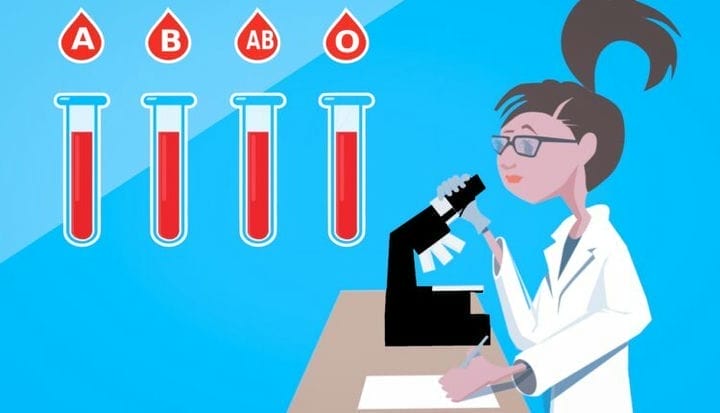What is a blood group?
One or another blood type is a classification of blood based on the presence or absence of inherited antigenic substances on the surface of red blood cells (erythrocytes). These characteristics are determined by identifying certain groups of carbohydrates and proteins.
Antigens can be:
• Proteins
• Carbohydrates
• Glycoproteins
• Glycolipids
Blood groups.
The most famous classification of blood by groups is the AB0 system.
This classification is based on two parameters:
1) The presence of antigens A and / or B on erythrocytes;
2) Presence of alpha and/or beta antibodies in plasma.
There are four types of blood:
I(0). alpha and beta (in 45% of people)
II (A). A and beta (in 35% of people)
III (B). B and alpha (in 13% of people)
IV (AB). A and B (in 7% of people)
Together with the AB0 system, a typology according to the Rh factor is used.
In short, Rh is one of the proteins found on the surface of red blood cells. Most people (85%) are Rh positive, a minority (15%) are Rh negative. By and large, Rh does not greatly affect a person’s life, but during pregnancy, if the Rh of the parents do not match, the fetus may be rejected due to the appearance of antibodies. For the same reason, people should not be transfused with blood with different Rhesus.
Blood group inheritance.
It will be clear to present inheritance in the form of examples.
X (blood type of the first parent) + Y (blood type of the second parent) = Z (blood type of the child)
I (0). + I (0). = I (0).
II (A). II (A). II(A). or I(0).
III (B). III (B). III (B). Or I(0).
I(0). II (A). II(A). or I(0).
I(0). III (B). III (B). Or I(0).
II (A). III (B). I(0). Or II (A). or III (B). Or IV (AB)
IV (AB) + I (0). II(A). Or = III (B).
IV (AB) + II (A). II(A). or III (B). Or IV (AB)
III (B). IV (AB) = II (A). or III (B). Or IV (AB)
IV (AB) + IV (AB) u003d II (A). or III (B). Or IV (AB)
Interesting about blood.
The blood type is a contribution from both parents, but at the same time, a pregnant woman can carry a child with a blood type different from her or her father’s, which in turn can cause fetal rejection, or rather, her body causes antibodies to the child’s red blood cells.
In Japan, when applying for a job, people are very often asked what their blood type is. in their opinion, blood greatly affects a person’s abilities. For example, those who have the first blood type are considered good leaders who know how to lead people.
